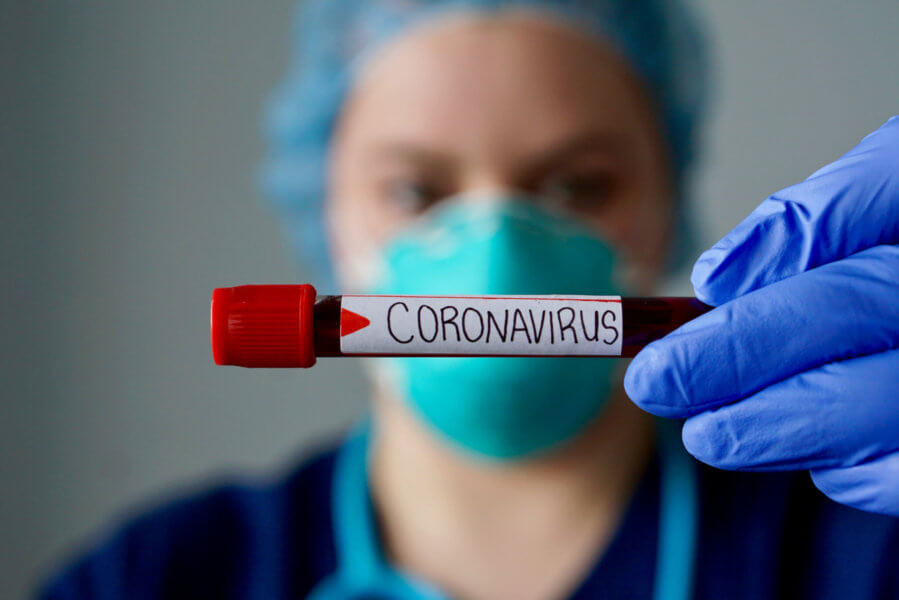
Gone are the traditional versions. COVID-19 symptoms now mimic a ‘bad cold’, experts say.
AXTON-COVID-19 is acting differently now. That’s the analysis from Dr. Tim Spector, professor of genetic epidemiology at King’s College London. During an international briefing, Spector, who is the co-founder of the ZOE COVID Symptom Study, said the Delta variant isn’t showing the same type of COVID-19 symptoms as previous versions.
“It’s more like a bad cold in this younger population,” Spector said. “This means people might think they’ve just got some sort of seasonal cold and they still go out to parties and they might spread it around to other people.”
To be clear, Spector said the Delta variant shows up exactly like a cold. That means people experience a headache, runny nose and sore throat to begin. Then they start feeling tired, with fatigue setting in and fever. That’s a significant switch from the original version of the virus, which showed up with symptoms like loss of smell, shortness of breath and a persistent cough.
“We don’t even see loss of smell coming into the Top Ten anymore,” Spector said. “This variant seems to be working slightly differently. It might feel like a bad cold or some funny off feeling, but do stay at home and do get a test [if you feel this way].”
In addition to changing symptoms, the mutated virus is also targeting a specific age range. A June 17 study by Spector’s group found that children and adults under 50 were 2.5 times more likely to get infected with the Delta variant.
Delta Variant Targets Younger Virginians
That’s been the problem here in Virginia, as younger adults, specifically those under 30, have been less inclined to get the vaccine. As of July 14, 88 Virginians had been infected by the Delta variant. Here’s the problem for parents. Four of those were under 10. That’s not a rare occurrence either. Since the pandemic started, 33,126 Virginia children under 10 have been infected with the virus. Out of that number, 259 ended up in the hospital and one died.
That part about age is key. Children under 12 are not eligible to be vaccinated. Even under an emergency basis, Pfizer and Moderna’s vaccines haven’t been tested enough to see what results they would have on young children.
That won’t change anytime soon. Pfizer officials don’t expect to have a children’s version ready for CDC approval until at least September. Moderna doesn’t have an ETA when their version could be ready.
As a result, the CDC and Virginia Health agree the best way to protect children is to have them wear face masks. That’s why masks are still mandatory indoors at all Virginia schools.
It’s also important to note the variant is adapting. In addition to changes in COVID-19 symptoms, it’s also much quicker. To give an example, the Alpha variant, the first mutation, spread 50% quicker than the original virus. Delta, meanwhile, spreads 40 to 60% quicker than Alpha.
“It binds to the human receptor with higher affinity than does the alpha variant,” said infectious disease expert William Petri. Dr. Petri works at the University of Virginia.
Basically, think of COVID-19 as paint. If you spill some of the original version on you, it can be washed off. If you spill the Delta variant on you, it almost immediately attaches, making it much harder to get the paint off.
Will The Vaccine Work Against Delta?
The big question for most people involves the vaccine. Will it protect against the Delta version? The answer isn’t as simple as yes or no. While proven effective, none of the COVID vaccines guarantee 100% immunity against COVID-19.
The Pfizer-BioNTech vaccine is 95% effective at preventing symptomatic disease. Moderna proves 94.1% effective for those with no prior COVID-19 infections, dropping to 86.4% for people ages 65 and older. The Johnson & Johnson vaccine, meanwhile, is 72% effective.
Those with full vaccination status have a lesser chance of catching the Delta variant, but it’s not impossible.
A group of Oxford University researchers studied antibodies in the blood of fully vaccinated individuals. They focused on whether or not the vaccines neutralized the Delta and Kappa variants.
The group recently published their findings in a journal called Cell. They found “no evidence of widespread [infection], suggesting that the current generation of vaccines will provide protection against the B.1.617 lineage.”
Brian Carlton is Dogwood’s managing editor. You can reach him at [email protected].
Aila Boyd is a freelance reporter for Dogwood. You can reach her at [email protected].
Want to read more stories like this? Sign up for Dogwood’s newsletter
Politics

Democratic shakeup in Virginia primaries for governor, lieutenant governor
Richmond Mayor Levar Stoney quit his bid for governor and jumped into the race to be the Democratic nominee for lieutenant governor. The race for...

New Biden rule protects privacy of women seeking abortions
Under the new rules, state officials and law enforcement cannot obtain medical records related to lawful reproductive health care with the goal of...
Local News

Virginia verses: Celebrating 5 poetic icons for National Poetry Month
There’s no shortage of great writers when it comes to our commonwealth. From the haunting verses of Edgar Allan Poe, who found solace in Richmond's...

Join the fun: Recapping Family Literacy Night’s storybook adventures
When’s the last time you read a book aloud with a loved one? If it’s difficult to answer that question, then maybe it’s time to dust off that TBR...




